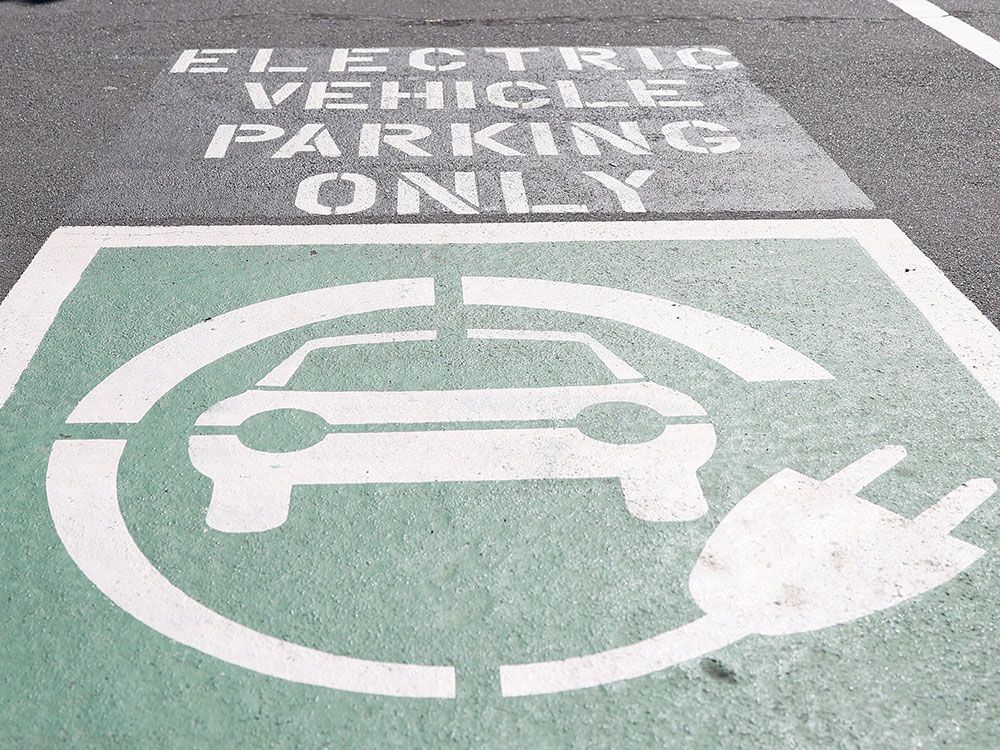Dealerships Intensify Fight Against EV Mandate Requirements

Table of Contents
Financial Burden of EV Mandate Compliance
The transition to an EV-centric market presents significant financial hurdles for dealerships. Meeting EV mandate requirements necessitates substantial investments and potentially shrinks profit margins, creating a challenging environment for many businesses.
High Initial Investment Costs
Adapting to the demands of EV sales requires a considerable upfront investment. Dealerships must upgrade their infrastructure, train staff, and manage new inventory, all of which incur significant expenses.
- Cost of installing fast chargers: The installation of Level 3 fast chargers can cost tens of thousands of dollars per unit, depending on location and power requirements. A dealership needing several chargers to meet anticipated demand faces a substantial capital outlay.
- Employee training programs: Sales staff and technicians require specialized training to understand and service EVs effectively. This training involves both theoretical knowledge and hands-on experience, adding to the overall cost of compliance.
- Marketing campaigns for EVs: Promoting EVs requires targeted marketing strategies to educate consumers about their benefits and address common concerns. These campaigns, including digital marketing and potentially print advertising, are an added expense.
- Inventory holding costs for EVs: Holding EV inventory can be more expensive than gasoline-powered vehicles due to factors like battery degradation and the need for specialized storage.
Industry reports suggest that the average cost of setting up EV charging infrastructure at a medium-sized dealership can exceed $100,000. This significant investment places a considerable strain on already tight margins.
Reduced Profit Margins on EVs
Currently, dealerships often experience lower profit margins on EVs compared to internal combustion engine (ICE) vehicles. This is due to a combination of factors.
- Lower vehicle price points: While prices are increasing, EVs generally have lower sticker prices than comparable gasoline-powered cars, leading to smaller profit margins per sale.
- Increased competition: The EV market is becoming increasingly competitive, with established automakers and new entrants vying for market share, potentially leading to price wars and further pressure on margins.
- Potential for government subsidies impacting dealer profit: While government subsidies aim to incentivize EV adoption, they can sometimes reduce the dealer's overall profit, as the subsidy might be passed on to the consumer.
These reduced profit margins, coupled with the high initial investment costs, raise serious concerns about the financial viability of meeting EV mandate requirements for many dealerships. Government incentives, while helpful, may not fully offset the financial strain.
Infrastructure Challenges and Consumer Readiness
Meeting the ambitious goals outlined in EV mandate requirements depends not only on dealership preparedness but also on supporting infrastructure and consumer acceptance. Currently, both pose significant challenges.
Lack of Adequate Charging Infrastructure
The nationwide charging infrastructure remains inadequate, particularly in rural areas, which is a significant barrier to widespread EV adoption. This issue directly impacts the feasibility of the EV mandate requirements.
- Statistics on charging station availability: A significant disparity exists between urban and rural areas regarding the availability of public charging stations. Many rural communities lack convenient and reliable charging options.
- Geographic disparities in charging infrastructure: The uneven distribution of charging stations creates “charging deserts,” limiting EV accessibility for a large segment of the population.
- Range anxiety concerns: Consumer concerns about range and the availability of charging stations remain a major obstacle to EV adoption. This “range anxiety” is particularly pronounced in areas with limited charging infrastructure.
- Limitations of home charging: While home charging is an option for many, it's not feasible for all consumers, especially those living in apartments or multi-unit dwellings without dedicated parking.
The lack of robust charging infrastructure directly contradicts the goals of many EV mandate requirements.
Consumer Demand and Preference
Current consumer demand does not yet fully align with the rapid adoption rates implied by some EV mandate requirements. Several factors contribute to this gap.
- Consumer surveys on EV adoption: Numerous surveys show that a significant portion of consumers still hesitate to adopt EVs due to various concerns.
- Concerns about range, charging time, and initial purchase price: Range anxiety, lengthy charging times, and higher initial purchase prices compared to gasoline vehicles remain key deterrents for potential EV buyers.
- Consumer hesitancy due to lack of familiarity with EV technology: Many consumers remain unfamiliar with EV technology, its maintenance, and its long-term costs.
Addressing these consumer concerns is crucial for the successful implementation of EV mandate requirements.
Legal Challenges and Lobbying Efforts
Dealerships are actively challenging and lobbying against what they see as overly ambitious EV mandate requirements. This is happening through various legal and political channels.
Dealership Associations Leading the Charge
Dealership associations are spearheading efforts to oppose or modify EV mandate requirements, arguing they are economically unfeasible and detrimental to their businesses.
- Lawsuits filed against governments: Several dealership associations have filed lawsuits against government agencies, challenging the legality and practicality of certain EV mandate aspects.
- Lobbying efforts with lawmakers: Dealerships are actively engaging in lobbying efforts to influence legislation related to EV mandates, seeking adjustments to create a more realistic and sustainable transition.
- Public awareness campaigns: Dealerships and their associations are launching public awareness campaigns to highlight the challenges they face in complying with the mandates and garner public support for their cause.
These legal and political challenges significantly influence the implementation of EV mandate requirements.
Arguments Presented Against Strict Mandates
The core arguments raised against strict EV mandates center on several key points:
- Unrealistic timelines for transition: Dealerships argue that the timelines set for transitioning to EVs are unrealistic, given the current infrastructure and consumer demand limitations.
- Potential job losses: They also express concerns about potential job losses in the automotive sector due to a rapid and unplanned transition.
- Negative impact on rural economies: The lack of adequate charging infrastructure in rural areas is highlighted as a significant threat to economic activity in these communities.
Dealerships are employing various strategies, from legal action to public advocacy, to emphasize these concerns and seek adjustments to the EV mandate requirements.
Conclusion
The challenges dealerships face in complying with EV mandate requirements are multifaceted and significant. Financial burdens from high initial investment costs and reduced profit margins, coupled with insufficient charging infrastructure and consumer hesitancy, represent major obstacles. The ongoing legal battles and lobbying efforts underscore the deep divisions surrounding the issue. The debate surrounding EV mandate requirements is far from over. Understanding the complexities of this issue, including the concerns of dealerships, is crucial for a successful transition to electric vehicles. Further research into the effectiveness and feasibility of current EV mandate requirements is needed to ensure a sustainable and equitable future for the automotive industry. Engage in the conversation about finding a balance between environmental goals and the economic viability of the automotive sector to ensure fair and effective EV mandate requirements.

Featured Posts
-
 Willie Nelson And Family An Austin City Limits Concert Retrospective
Apr 29, 2025
Willie Nelson And Family An Austin City Limits Concert Retrospective
Apr 29, 2025 -
 Access To Birth Control Examining The Impact Of Over The Counter Options Post Roe
Apr 29, 2025
Access To Birth Control Examining The Impact Of Over The Counter Options Post Roe
Apr 29, 2025 -
 Kentucky Severe Weather Nws Readiness For Awareness Week
Apr 29, 2025
Kentucky Severe Weather Nws Readiness For Awareness Week
Apr 29, 2025 -
 Activision Blizzard Merger Ftcs Appeal Could Halt Microsoft Deal
Apr 29, 2025
Activision Blizzard Merger Ftcs Appeal Could Halt Microsoft Deal
Apr 29, 2025 -
 Minnesota Governor Defies Us Attorney General On Transgender Athlete Ban
Apr 29, 2025
Minnesota Governor Defies Us Attorney General On Transgender Athlete Ban
Apr 29, 2025
Latest Posts
-
 Convicted Cardinal Claims Right To Participate In Papal Conclave
Apr 29, 2025
Convicted Cardinal Claims Right To Participate In Papal Conclave
Apr 29, 2025 -
 Update Missing Brit Paralympian Found Following Wrestle Mania Disappearance
Apr 29, 2025
Update Missing Brit Paralympian Found Following Wrestle Mania Disappearance
Apr 29, 2025 -
 Papal Conclave Legal Battle Over Convicted Cardinals Voting Eligibility
Apr 29, 2025
Papal Conclave Legal Battle Over Convicted Cardinals Voting Eligibility
Apr 29, 2025 -
 Brit Paralympian Missing At Wrestle Mania Found Safe
Apr 29, 2025
Brit Paralympian Missing At Wrestle Mania Found Safe
Apr 29, 2025 -
 Controversial Cardinals Conclave Voting Rights Under Scrutiny
Apr 29, 2025
Controversial Cardinals Conclave Voting Rights Under Scrutiny
Apr 29, 2025
